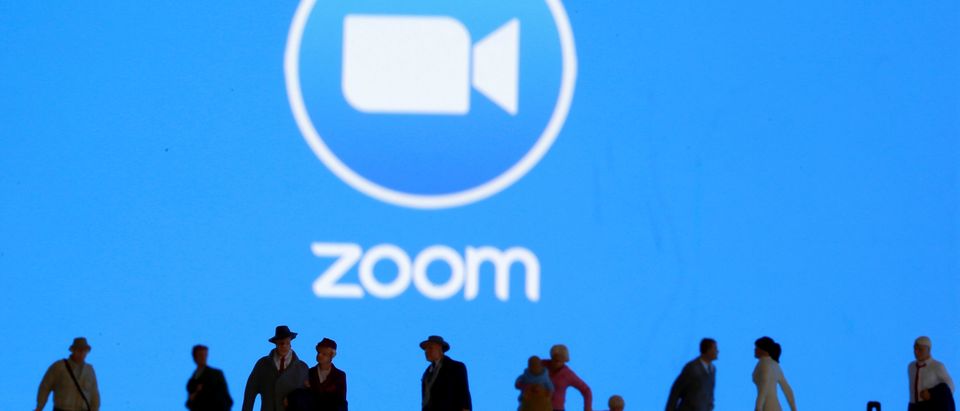“I’m here live. I am not a cat.”
So said county attorney Rod Ponton to Judge Roy Ferguson during a Zoom call court appearance before the 394th Judicial District Court in Brewster County, Texas, this week. The judge politely informed him about video filters and Ponton’s assistant helped turn it off. And Americans got some much needed laughter – not at him, but with him! No harm, no foul.
While this Zoom mishap may be the best known since now-fired New Yorker legal columnist and suspended CNN commentator Jeffrey Toobin “exposed himself” to colleagues on a work call last year, both represent the tip of the iceberg in how video conferencing is changing America.
The perfect storm whipped up at the crossroads of a global pandemic, urban dysfunction, lopsided state/local tax policies and technological advances are creating what some are calling a “Zoom Boom” that is reshaping how Americans live, work and interact.
Major cities, especially in the Northeast and the West Coast, are seeing commercial real estate rates and residential rents plummet as demand for office space craters under coronavirus-related lockdown orders.
Just look at the numbers.
According to the Commercial Observer, property tech firm VTS reported the nationwide demand for leasing office space in central business districts of major U.S. cities was down 61% in December from the previous year. New York, Boston, Washington, D.C., Seattle, San Francisco and Portland have been particularly hard hit. Investors.com cites a CoStar Group report also from December showing commercial properties valued as much as $126 billion being forced to liquidate through 2022.
Meanwhile, places known better as suburbs and/or tourist locales have real estate booms. A National Association of Realtors report in December showed 8.9 million Americans moved in mid-2020 as the pandemic soared, with New Jersey, Maryland and South Carolina gaining the most. New York, Texas and Washington, D.C. lost the most. Scenic spots in Rocky Mountain states Idaho, Montana, Wyoming, Utah, Colorado, Arizona and New Mexico are seeing home prices skyrocket as people flee cities or simply snap up second homes with investment funds, often squeezing out locals who can no longer afford to buy anything.
While work-from-home has become the norm for Americans throughout 2020, over 70% according to the Pew Research Center, it is wishful thinking that things will “go back to normal” once coronavirus vaccines become widespread and the pandemic eventually subsides.
Corporate America doesn’t seem to mind.
Last year, Twitter CEO Jack Dorsey said that Twitter employees can work remotely even after the pandemic is over. His counterpart at Facebook, Mark Zuckerberg, responded with indefinite work-from-home plans for some staff and a prediction that in 5-10 years, half of Facebook employees would be remote.
Silicon Valley giants are also physically moving out of California. Hewlett-Packard Enterprise announced in December it’s leaving Palo Alto for Houston. Oracle and Tesla declared moves to Texas. Peter Thiel’s Palantir is headed for Colorado. Wall Street types like Goldman Sachs are reportedly pondering partial moves out of New York and into South Florida.
So with all these near-empty office buildings in America’s once premier cities and tens of millions working from home indefinitely, it’s predictable the tax base which pays for city services and their employees will collapse. Thus our urban nightmares of violent crime, anarchic riots, soaring homelessness combined with misguided calls to defund the police will make them even worse.
So many people are naturally looking for new “virtual offices” and video chats from anywhere to avoid cities altogether.
Zoom and Skype are among the most widely known. As TV studios have encouraged remote appearances or outright closed them to on-air guests due to COVID-19, I’ve been living on both as a national security commentator. I even suggested and joined “Manny’s Zoom Super Bowl Party” to help replace a couple-decade tradition hosted by a friend in Maryland’s suburbs which drew about 50 people a year. Even if the NFL has gone downhill in terms of ratings and social commentary, it’s still nice to “see” friends.
Apart from Zoom and Skype, PC Magazine showed the highest growth five during 2020 as Facetime, Facebook Messenger and What’s App.
But there are dozens more. Last year, instead of traveling to Portugal to speak at an economic conference hosted by the Switzerland-based NGO Horasis, the 1,000-person forum was held remotely via Run The World. And I recently came across Kumospace and its video chat function which allows users to move into different virtual rooms individually, like a bar or living room. Probably would have beat Zoom for the Super Bowl party.
Big Tech projects like Google Hangouts, Microsoft Teams and Amazon Chime are also on the move. Plus smaller ventures like Marco Polo, Houseparty and Jitsi. Definitely a growth market, for better or worse.
It’s our new reality — the horse has already left the barn. Just don’t let the cat out.
J.D. Gordon is a former Senior National Security & Foreign Policy Advisor to Republicans Donald Trump, Mike Huckabee and Herman Cain. Previously, he served as a Pentagon spokesman during the George W. Bush Administration and is a retired Navy Commander.


